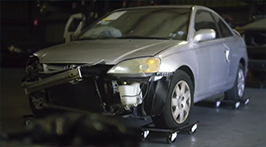When a patient’s kidneys are no longer able to effectively remove wastes or concentrate urine, such as in cases of acute renal failure or stage 5 chronic kidney disease, it is typically necessary for the patient to rely on a dialysis machine until their health improves or a kidney transplant becomes available. Dialysis is an imperfect medical treatment that removes some of the liquid and waste by-products created by the body through a combination of ultrafiltration and diffusion. Dialysis filters play a pivotal role in ensuring the safety and efficiency of a dialysis system.
Conditions Requiring the Use of Dialysis
Kidney failure, also known as renal failure, can result from a number of different underlying medical conditions. Kidney failure includes both chronic kidney failure and acute kidney failure, or the sudden loss of kidney function that often results from injury or an overdose of medication or chemotherapy. Patients who have recently undergone heart-bypass surgery also commonly experience acute kidney failure. Patients recovering from acute kidney failure typically rely on dialysis filters for a short period of time before going on to live normal lives, but they are at a high risk of developing chronic kidney failure, or kidneys that have permanently ceased to function properly. If the patient reaches stage 5 chronic kidney failure, he or she will depend upon dialysis filters on a permanent basis unless a kidney transplant is performed. The most common cause of stage 5 chronic kidney failure is diabetes, but hypertension and obesity can also cause the condition.
Dialysis Filter Defects
While dialysis filters have prolonged life and eased the suffering of countless patients, improper use of a dialysis machine and manufacturer defects in the design of dialysis filters can result in serious injury or death. A handful of specific defects have been discovered on certain models of dialysis filters, prompting the Food and Drug Administration (FDA) to issue various safety alerts in recent years.
The most common type of dialysis is hemodialysis, a process which removes wastes and water from the blood through an external filter called a dialyzer. Dialyzers use a variety of potentially toxic chemicals during the process of hemodialysis which can be deadly if they are not properly removed from the blood solution before it is returned to a patient’s body. Other defects can cause the dialyzer to leak while it is being used or allow for the hollow fibers of the dialysis filter to break down over time, possibly causing injury to a patient. The FDA has issued statements indicating that there may be cause for concern in regards to a particular type of dialysis filter known as a cellulose acetate dialyzer which has been reported to leak during use and cause hearing loss, vision loss, and conjunctivitis in patients after use.
Dialyzer Recalls
One of the most famous cases of injuries and deaths due to a defective filter occurred between 1998 and 2001 in faulty dialysis filters made by Baxter International Inc. of Deerfield, Illinois. In this case, over fifty individuals located in 23 different countries died due to a defect in Baxter dialyzers that allowed one of the toxic cleaning chemicals used during hemodialysis to be pumped back into the patient’s body after the blood had passed through the machine. Although Baxter initially denied any indications that their dialysis filters were at fault in these deaths, the company went on to recall the dialyzers in October 2001. Baxter announced the following month that they had discovered reason to believe that a chemical used in routine testing of their equipment may have played a role in the deaths and urged the medical community to cease using their dialysis filters.
A few other dialysis filters have been recalled during the last decade. In October 2001, Japanese manufacturer Asashi Medical Company voluntarily recalled six different models of their APS Series dialyzers due to a faulty design that caused the devices to leak blood under certain customer reprocessing conditions. Another example occurred in early 2005 when Houston-based manufacturer Toray Marketing and Sales issued a recall for an end cap on some of their Filtryzer and Toraysulfone dialyzers that could potentially come loose during use.
Sources:
- http://www.nlm.nih.gov/medlineplus/kidneyfailure.html
- http://journals.lww.com/biomedicalsafetystandards/Citation/2004/04010/Di…
- ttp://www.accessdata.fda.gov/scripts/cdrh/cfdocs/cfRes/resCollection_2….
- http://www.fda.gov/MedicalDevices/Safety/AlertsandNotices/PublicHealthNo…
